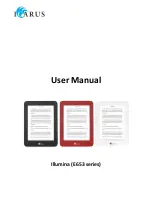
Dispense Module Tests |
95
Parameter
Default Setting
Read Wells
Full plate
Gain
120
Delay after plate movement
0 msec
Excitation time
100 msec
Delay after excitation
120 msec
Integration time
100 msec
Read height
7.00 mm
Dispense Module Tests
This section applies only to models with the dispenser.
Required Materials
•
Absorbance reader with capability of reading at 405, 630, and 750 nm. The
reader must have an accuracy specification of ± 1.0% ± 0.010 OD or better and a
repeatability specification of ± 1.0% ± 0.005 OD or better.
The Cytation 5 may be used if it is equipped with absorbance
capabilities and has passed the Absorbance Plate Test or Absorbance
Liquid Test 1.
•
Microplate shaker (if the absorbance reader does not support shaking)
•
Precision balance with capacity of 100 g minimum and readability of 0.001 g
•
50–200 µL hand pipette and disposable tips
•
Deionized water
•
Supply bottles
•
250-mL beaker
•
New 96-well, clear, flat-bottom microplates
•
BioTek’s Green Test Dye Solution (PN 7773003) undiluted,
or
one of the
alternate test solutions listed in the next section
•
100-mL graduated cylinder and 10-mL pipettes (if not using BioTek’s Green
Test Dye Solution)
•
Gen5 software installed on the host PC
•
Gen5 protocols described on page 98
Cytation 5
Summary of Contents for Cytation 5
Page 13: ...Installation ...
Page 31: ...14 Install the Imager Module 19 Cytation 5 ...
Page 37: ...Getting Started ...
Page 54: ...42 Getting Started BioTek Instruments Inc ...
Page 55: ...Maintenance ...
Page 66: ...54 Maintenance BioTek Instruments Inc ...
Page 67: ...Instrument Testing ...
Page 113: ...Specifications ...
















































